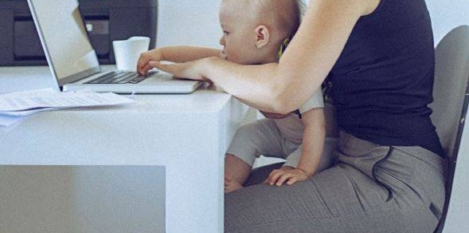March 10, 2016
Staff believe 91 percent of UK firms will no longer be competitive by 2020 0
 Studies using 2020 as an apocalyptic landmark are thinner on the ground these days as we get closer to the actual year, so it’s great to see the old chestnut given another roasting in a new report from tech consultancy Infomentum. The headline stat from their new Beyond Digital report is that 91 percent of UK employees believe that new technology will mean that their current businesses will no long be competitive by 2020 unless they face up to the challenges of the digital economy. The report, based on a study of over 1000 office workers, examines how new technology is set to disrupt businesses and employment. Around 50 percent of respondents believe their employers will have to invest in new technology in order to fend off extinction. The survey also suggests that organisations resort to bandwagon jumping when it comes to new technology rather than assessing their needs before making decisions.
Studies using 2020 as an apocalyptic landmark are thinner on the ground these days as we get closer to the actual year, so it’s great to see the old chestnut given another roasting in a new report from tech consultancy Infomentum. The headline stat from their new Beyond Digital report is that 91 percent of UK employees believe that new technology will mean that their current businesses will no long be competitive by 2020 unless they face up to the challenges of the digital economy. The report, based on a study of over 1000 office workers, examines how new technology is set to disrupt businesses and employment. Around 50 percent of respondents believe their employers will have to invest in new technology in order to fend off extinction. The survey also suggests that organisations resort to bandwagon jumping when it comes to new technology rather than assessing their needs before making decisions.



































March 8, 2016
Classrooms are starting to mimic the form and function of the office 0
by Tricia McCall • Comment, Technology, Workplace design
Technology is not the only factor impacting the way education is being approached in the classrooms of today. While it’s true that many classrooms have begun to adapt to the inclusion of technology in the curriculum, there are also several “offline” options which have clearly trickled down from business design. Globally known companies such as Google and Apple have long been getting attention for the offbeat office culture they are cultivating. This trend has been fanning out into the other companies and industries as well. In-house chefs, rock climbing walls, and unconventional meeting spaces are a few of the unusual features popping up in offices all over the globe. Employers are striving to entice potential job candidates and retain their existing employees through unique and engaging environments. It may well be that the bells have already tolled for the conventional cubicle culture of the past.
(more…)